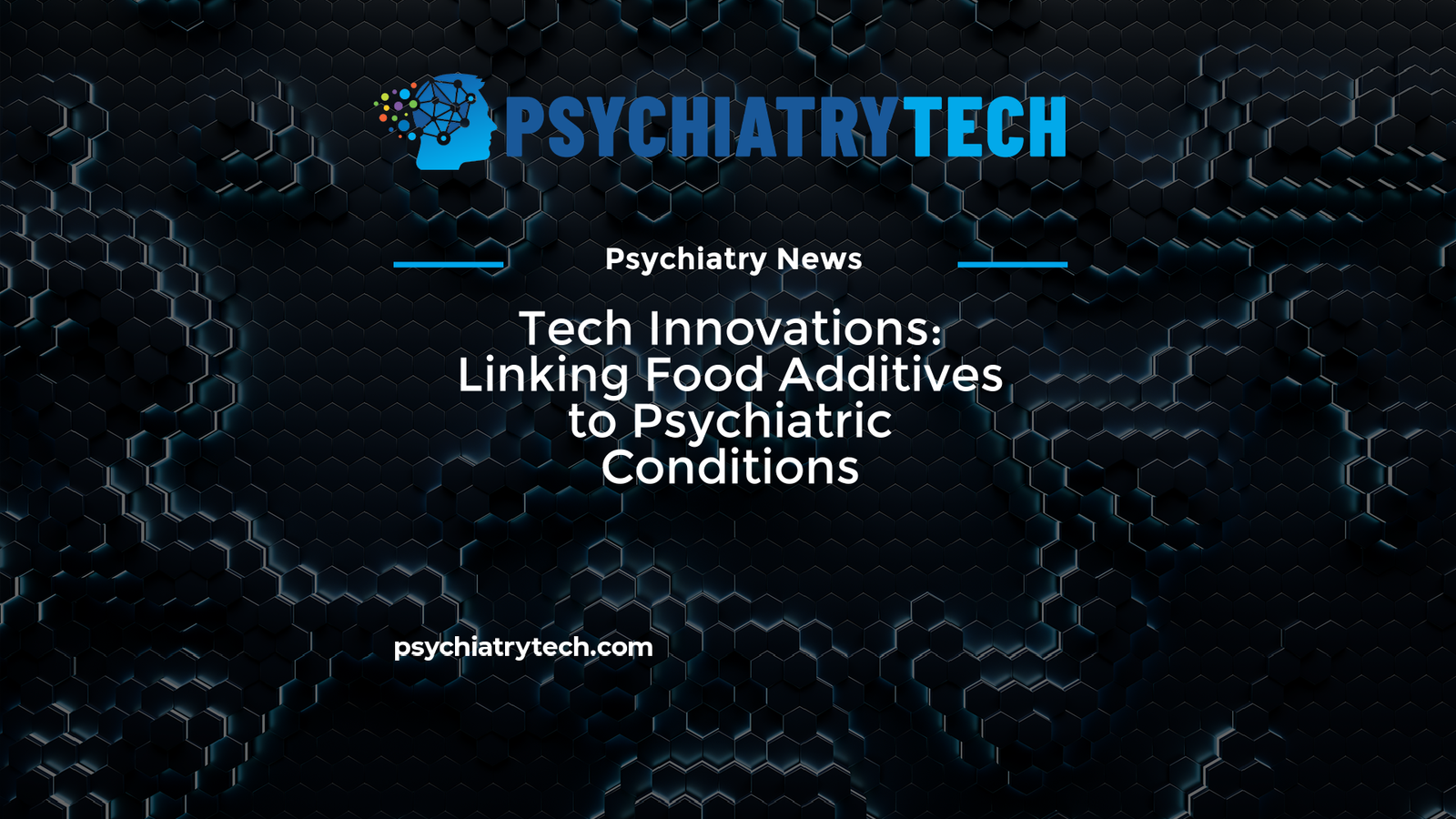Tech Innovations: Linking Food Additives to Psychiatric Conditions
In the evolving spectrum of psychiatric care, technology strides forward, bringing advanced tools and methods to address mental health issues. This article delves into an intriguing aspect of modern psychiatry – the influence food additives have on psychiatric disorders.
The Emergence of Connection
Initial studies on food additives chiefly focused on their physical health impacts. However, new research now suggests potential links between artificial food additives and various psychiatric disorders.

Discover The World's MOST COMPREHENSIVE Mental Health Assessment Platform
Efficiently assess your patients for 80+ possible conditions with a single dynamic, intuitive mental health assessment. As low as $12 per patient per year.
Defining Food Additives
For the uninitiated, food additives are synthetic or natural substances added to food to enhance their taste, color, texture, or longevity. Their ubiquity in today’s fast-paced world is undeniable – most pre-packaged foods contain them.
Colors, Preservatives, and Mental Health
Of particular interest to psychiatry are artificial colors and preservatives. Research in this domain primarily revolves around their effects on neurobehavioral traits in children, the principal concerns being ADHD (attention deficit hyperactivity disorder) and other related conditions.
Notable Studies
Several key studies have explored the connection between food additives and mental health issues, such as:
- The Southampton study – it documented heightened hyperactivity in children after consumption of drinks laden with artificial colors and sodium benzoate, a common preservative.
- The Adelaide University study – it revealed improved behavior in children with ADHD after they followed a diet free of artificial food colors.
New Technological Approaches
The application of advanced technological methodologies to psychiatric research is proving to be transformative. Machine learning and AI have materialized as powerful tools for analyzing large-scale data, including the impact of food additives on neurobehavioral traits.
This breakthrough underlines the incredible potential of tech innovations in shaping the future of psychiatry and mental health care.
Consumer Awareness And Future Directions
Although research continues to unveil the impacts of food additives on mental health, upscaling consumer awareness remains a challenge. With technology becoming the underpinning of modern psychiatry, it’s crucial to deploy its power to educate and inform the collective consciousness about the significance of diet in mental health.
The future portends the use of technology, such as AI-based prediction models and interactive applications, to guide the masses about the dietary choices they make and their psychological outcomes.
Concluding Thoughts
The innovative use of technology to analyze and understand the impact of food additives on psychiatric disorders underscores the transformative role tech has in modern psychiatry. While results are still nascent, the progress promises a new avenue for preventive measures and personalized treatment plans in mental health care.
Are you excited about the prospect of integrating technology into nutrition-based psychiatry? Do you anticipate seeing more technological innovations aiding our understanding of dietary influences on mental health? Spread the word about these fascinating developments in Psychiatry Tech by sharing this post on your social media platforms. Together, let’s contribute to raising awareness about the importance of dietary factors in mental health.

